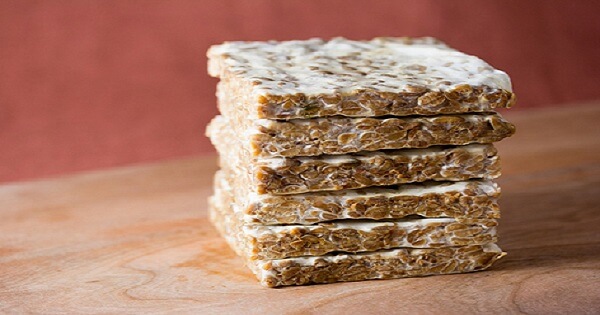This Is What Happens To Your Body If You Don’t Eat Enough Protein

Protein Deficiency Is a Real Concern to Vegans and Vegetarians.
Our bodies sends us messages loud and clear when it needs something, but do we listen when it speaks.
The flip side to that question is if we do listen, do we even know how to accurately interpret what it is trying to tell us.
Vegans and vegetarians are often hit with the question, “Where do you get your protein from?”
If you are newly considering changing over to a plant-based diet, this question comes with an underlying warning to hint around their uninformed presumption that you won’t be able to get enough protein on a vegan or vegetarian diet.
Their is much research to support that plant-based foods contain plenty enough protein to support the human body alone without you needing to ingest meat.
That being the case, you need not worry if you can get enough protein from consuming only a plant-based diet, but you do need to make sure you are including enough of the protein-rich foods in your diet.
Your body will surely tell you if it is suffering from a protein deficiency .
How To Know If You Are Eating Enough Protein
Watch out for these symptoms. Your body may be telling you that you are not eating enough protein.
- Anxiety/depression (amino acids fuel the neurotransmitters serotonin and dopamine that prevent depression and anxiety)
- Poor injury recovery (protein fuels muscle recovery and regrowth)
- Hair Loss/Breakage (protein supports collagen production in the hair, skin, and nails)
- Inability to focus (amino acids support brain performance)
- Constant muscle pain (protein helps muscle recovery and aids in repair)
- Brittle/Breaking Nails (protein supports collagen production in the hair, skin, and nails)
- Poor muscle tone, even with exercise (protein builds and maintains lean muscle mass)
- Constantly fatigued (protein is needed for a healthy metabolism)
- Digestive issues (protein aids in digestion)
Plant-based Protein Rich Foods
If you suspect that you may be protein deficient, here is a list of protein-rich, plant-based foods you can add to or increase in your diet.
Broccoli: 5 grams per cup
Spinach: 5 grams per cup
Rye Grains: 5 grams per 1/2 cup cooked
Rolled Oats: 7 grams per 1/2 cup cooked
Millet: 5 grams per 1/2 cup cooked
Amaranth: 6 grams per 1/2 cup cooked
Freekah: 5 grams per 1/2 cup cooked
Teff: 7 grams per 1/2 cup cooked
Buckwheat: 7 grams per 1/2 cup cooked
Almond Butter: 7 Grams per 2 tablespoons
Spirulina: 4 grams per teaspoon (!!)
Chlorella: 2 grams per teaspoon
Chia seeds: 10 grams per 2 tablespoons
Flax Seeds: 5 grams per 2 tablespoons
Cacao Powder: 5 grams per 2 tablespoons
Maca: 3 grams per tablespoon
Acai: 5 grams per 3 ounce frozen puree
Kale: 5 grams per cup
Lentils- 18 grams per cup
Black Beans- 13 grams per cup
Chickpeas- 13 grams per cup
Tofu: 10 grams per 3 ounces
Tempeh: 10 grams per 2 ounces
Endamame (Soybeans) – 16 grams per cup
Romaine Lettuce: 3 grams per cup
Sunflower Seeds: 10 grams per 1/4 cup
Almonds: 7 grams per 1/4 cup
Pumpkin Seeds: 10 grams per 1/4 cup
Coconut Flour: 3.5 grams per 2 tablespoons
Quinoa: 7 grams per 1/2 cup cooked
Plant-Based Protein Powders (hemp, pea, brown rice, cranberry bean, soy, etc.) : 17-25 grams per scoop (depending on the brand)
Green Peas: 8 grams per cup
How to Figure Out The Right Amount Of Protein Your Body Needs
You may be experiencing some of these symptoms but you are unsure if you should interpret them to mean you have a protein deficiency or not.
Here is a simple formula for calculating how much protein your specific body needs.
Multiply your body weight times .40 and that’s the recommended amount of protein you need for everyday functions. If you’re athletic, eat a little more and divide it up evenly between meals – simple as that.
With this formula, you can know accurately calculate what your daily protein consumption has been and is right now.
Now you have a better gauge for determining if you indeed have a protein deficiency and what foods you need to eat to correct it.
(Source: http://www.onegreenplanet.org/natural-health/how-to-tell-if-youre-getting-enough-protein/ )
(Source/Image: http://www.onegreenplanet.org/natural-health/busted-the-myth-about-incomplete-plant-based-protein/ )
Comments









